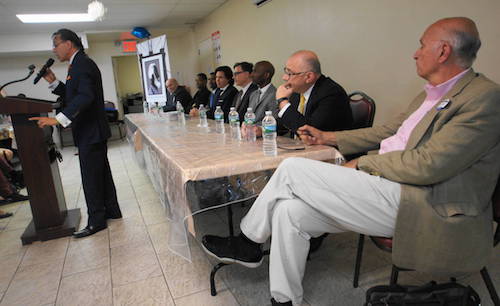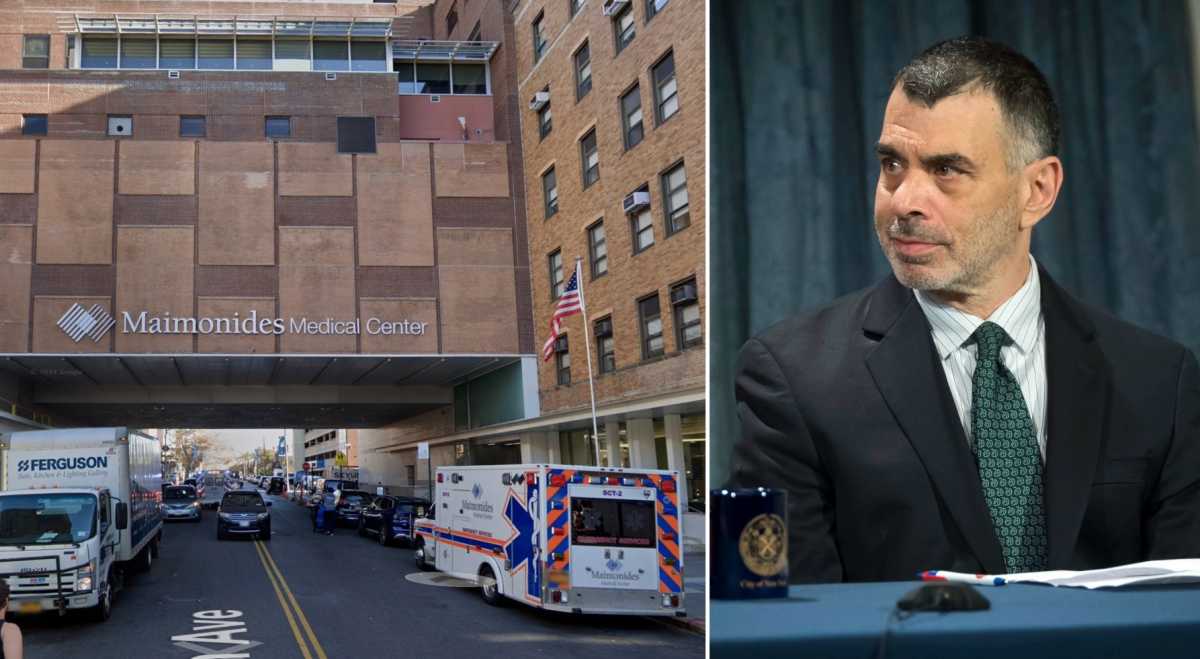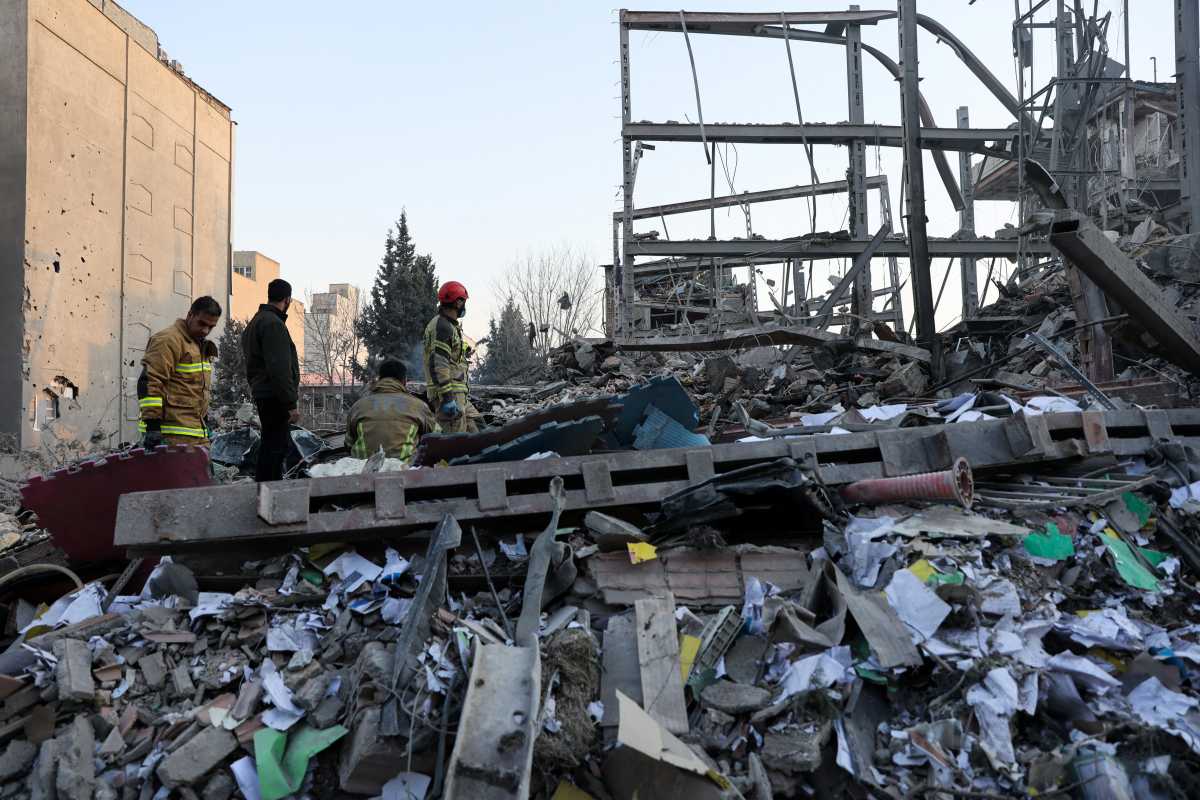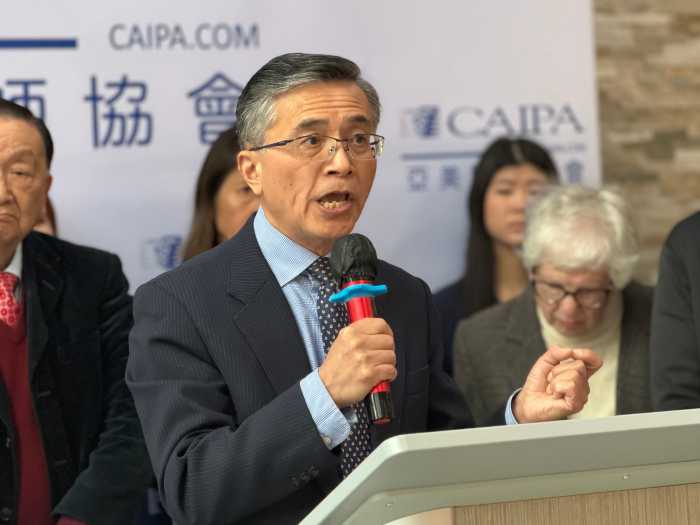In a mayoral forum event on Monday which billed Mayor Bill de Blasio to show up, the nine minor mayoral candidates that did participate took questions from the audience, jabbed at de Blasio and talked affordable housing, criminal justice and broken windows policing.
The Ernest Skinner Political Association (ESPA), which is City Council Member Jumaane Williams (D-Flatbush, East Flatbush, Midwood) home Democratic club, organized the event held at the Clarendon Road Church, 3304 Clarendon Road in East Flatbush.
Skinner said the candidates had all registered with the campaign finance board that they were running for mayor, and that’s why they were asked to participate. At post time it is unclear if de Blasio, who is close with Williams, had indeed agreed to participate.
“I’m running for mayor because New York City is no longer affordable for the vast majority of New Yorkers,” said Candidate Colin J. Slattery, expressing a shared sentiment among most of the candidates of the night.
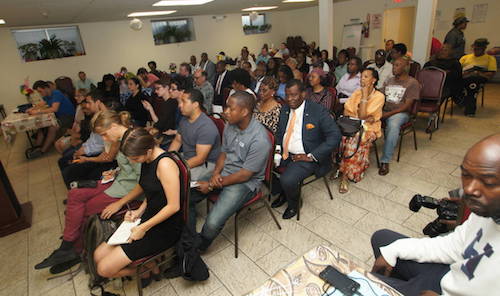
Over the past decade, average rents in New York City have climbed 15 percent, while the median per capita income of renters has only risen about 2 percent, according to a 2015 New York University study. Though the de Blasio administration added or protected 21,963 affordable housing units in 2016, only 4,400 were reserved for extremely low-income New Yorkers.
Candidates discussed the “housing crisis” in-depth, insisting that de Blasio was beholden to developers, and offered their own solutions.
Candidate Robert Gangi argued that the only way to solve the issue was to “take big real estate” out of any plan to build affordable housing. Slattery referenced the Bedford Armory Project in Crown Heights, adding “the city should not be giving away its property to developers.”
Candidate Richard Bashner addressed the challenges that elderly New Yorkers face and encouraged the creation of more affordable assisted living spaces with add-on services for residents in need. Candidate Eric Roman questioned what was “actually affordable” for residents, adding that he’d seen units for $1700 a month, which he said was not affordable for many.
“It really doesn’t matter how many affordable units you build, if people can’t afford to be in them,” said Candidate Karmen M. Smith, adding it was crucial to put an end to eviction-blacklisting and high security-deposits.
Candidate Scott Joyner argued that to pay for the creation of new housing units, the city first had to come up with a clear source of revenue. He argued that the decriminalization of marijuana would bring money to the city and reduce prison populations.
In April, the city unveiled a plan to close the jail at Rikers Island, announcing a 10-year goal to empty the prison and plans to reduce the number of inmates in the city to 5,000, from the current average of 10,000. Politically, the city and the state have been relatively unified on the issue, but they face complicated obstacles to shutting down a major jail complex. Officials say shutting down Rikers Island could cost the city as much as $13.9 billion dollars, but would save the city $1.4 billion annually.
“I believe Riker’s Island is a penal colony for the poor,” said Bashner. “Four out of every five prisoners are innocent under the law, New Yorkers being unconstitutionally incarcerated without being found guilty of a crime, just because they cannot post bail.”
Roman, a former corrections officer for eleven years, said in his opening statement that he does not support closing Rikers Island. However, the rest of the candidates were mostly in agreement on the facility.
Joyner referenced his own work with the movement to close Rikers Island, arguing that the prison was costing the city $247,000 per inmate every year. Gangi also argued that closing Rikers would save the city money, but added that the problem came back to policing.
“Ninety percent of [prisoners] have not been charged with a dangerous crime,” said Gangi. “Most of the people at Rikers, by any criteria, could be released to the community tomorrow and wouldn’t be a danger.”
Candidates debated policing many times throughout the night, referencing “Broken Windows” policing and arguing for a change in police accountability. “Broken Windows” is a crime and policing theory that focuses police resources and energy on addressing misdemeanors or small-scale crime such as graffiti, prostitution, or drug use.
“The truth is, we really need to change the way that police interact with these communities, because it’s not them serving the community,” said Slattery. “It’s an antagonizing approach.
“That is policing that targets black and brown people engaging in innocuous activities that no police officer would even think of arresting a white person in a wealthy neighborhood,” argued Gangi.
Candidates agreed on the importance of the Right to Record Act, which states that citizens have the right to record police officers, so long as they do not interfere with their activities, as well as legislation that would encourage officers to present business cards or identification when stopping a citizen.
Candidate Darren Aquino and Gangi both argued for harsh punishment for the officers involved in the death of Eric Garner in 2014. Joyner emphasized the importance of “in depth” retraining, and Smith referenced his own experiences with “overpolicing and underservice of our brown and black communities” living in the South Bronx.
Baschner said the problem came down to “a war on black and brown people in this country and in this city,” referencing the Cabaret Law, which restricts dancing and dates back to prohibition-times, as well as the Nixon Administration’s crackdown on drug use.
Slattery argued that though this legislation is helpful, “we need to do more and go further to make sure that the police department is serving all of the communities here in New York,” noting that video evidence has not always resulted in consequences for cops.


